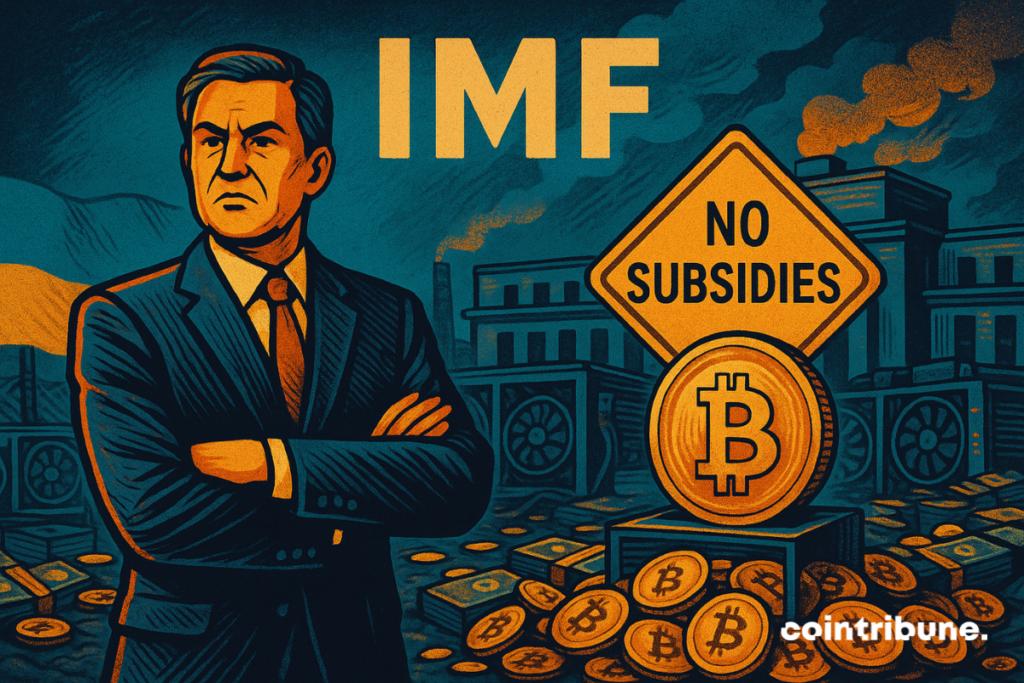IMF Says No to Crypto Mining Subsidies
The International Monetary Fund has rejected Pakistan’s proposal to subsidize electricity for crypto mining operations, citing concerns over market distortions and energy infrastructure strain.

The decision poses a setback to Pakistan’s ambitions to become a regional crypto mining hub, just two months after announcing the creation of a strategic Bitcoin reserve.
In brief
- The IMF has rejected Pakistan’s plan to subsidize electricity for crypto mining operations.
- Officials say the move would distort energy markets and worsen infrastructure strain.
- Pakistan’s broader crypto push continues, but energy policy remains a sticking point.
IMF pushes back on subsidized tariffs
According to Pakistan’s Power Secretary Dr. Fakhray Alam Irfan, the IMF declined to support a plan to offer discounted electricity rates to crypto miners and other energy-intensive industries.
As of now, the IMF has not agreed.
That’s what Irfan told lawmakers during a Senate committee hearing. The proposal is still under review by the World Bank and other international partners.
The plan, initially proposed in September 2024, aimed to offer electricity at $0.08 per kWh to crypto miners to help absorb Pakistan’s seasonal energy surplus. However, the IMF warned that subsidized power packages, especially those targeting specific industries, risk undermining an already fragile electricity sector saddled with over $4.5 billion in circular debt.
Economic promise vs. energy realities
The IMF’s rejection puts light on a key dilemma: while crypto mining could bring in foreign investment and strengthen digital infrastructure, it must not come at the cost of further destabilizing Pakistan’s struggling power grid. Mohith Agadi, founder of Fact Protocol, said:
This is a fundamental tension. Crypto mining can generate economic value, but sustainability and energy equity must come first.
Pakistan had hoped its surplus winter power could be monetized via energy-intensive industries like Bitcoin mining and AI data centers. But a failure to consult the IMF on these moves triggered concerns over fiscal discipline and long-term energy shortages.
Calls for a sustainable roadmap
Some industry figures believe Pakistan’s crypto energy strategy needs a slower rollout. Pranav Agarwal, director at Jetking Infotrain India, said:
Start small. Use existing hydropower or solar potential, demonstrate value over time, and build IMF support gradually.
Critics warn that launching large-scale subsidized mining such as for Bitcoin without a resilient energy base could backfire, especially as regulators and credit agencies look for economic reforms in exchange for financial support.
Maximize your Cointribune experience with our "Read to Earn" program! For every article you read, earn points and access exclusive rewards. Sign up now and start earning benefits.
I've been passionate about crypto for nearly a decade, ever since I was young and first became curious about investing. That early spark led me to years of research, writing, and exploring the future of decentralized tech.
The views, thoughts, and opinions expressed in this article belong solely to the author, and should not be taken as investment advice. Do your own research before taking any investment decisions.